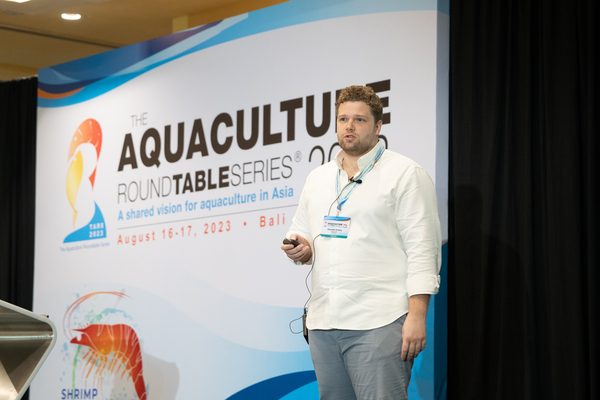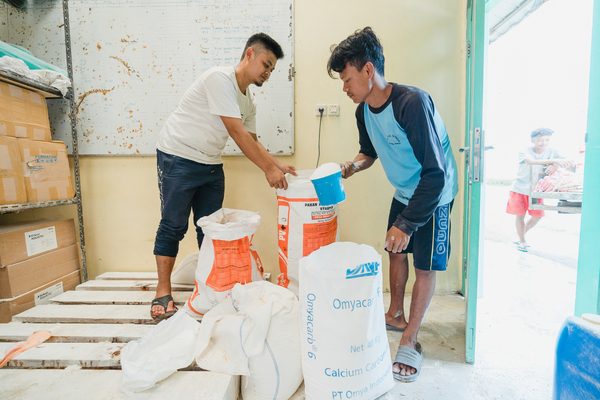Get to Know Shrimp PCR, an Early Disease Identification Solution
PCR (Polymerase Chain Reaction) for shrimp has become one of the latest innovations continuously developed to combat various shrimp diseases. This is because the emergence of diseases itself can have a significant impact on the decline in productivity and substantial economic losses.
For example, in 2018, Thailand and Vietnam, the two largest shrimp exporters in Southeast Asia, experienced a decrease in shrimp exports due to the infection of Early Mortality Syndrome (EHP).
Therefore, it is important for shrimp farmers to perform early disease checks to avoid greater losses. One way to do this is by identifying the presence of genetic material DNA or RNA from viruses, bacteria, fungi, and parasites infecting shrimp without waiting for disease symptoms to appear using the PCR (Polymerase Chain Reaction) test.
Also Read: Recognize 7 Characteristics of AHPND Disease in Vannamei Shrimp Before It’s Too Late
What is Polymerase Chain Reaction (PCR)?
Polymerase Chain Reaction (PCR) is an analysis of the presence of genetic material (DNA and RNA) of an organism. PCR can identify the presence of viruses, bacteria, and micro-parasites that cause shrimp diseases, even in very small quantities (10 copies of the virus or bacteria).
The principle of PCR is to break the double-stranded DNA and target a “specific region” according to the identification target, followed by duplication of the target DNA at a specified time. Therefore, by using PCR, we can analyze the presence of various types of diseases in the same sample. In shrimp farming environments, PCR can be used to check for the presence of diseases in shrimp, pond water, mud, natural feed, artificial feed, and wild fauna that could potentially be carriers of these diseases.
PCR shrimp testing is usually done in laboratories using samples prepared by shrimp farmers. Typically, these samples can be whole shrimp or organ samples such as pleopods, hemolymph, hepatopancreas, stomach, and epithelium, which are placed in 70-96% alcohol for 24 hours before being sent.
Benefits of Shrimp PCR Testing
PCR testing for shrimp is an important tool in detecting diseases such as IMNV, WSSV, IHHNV, EHP, and others. Some other benefits of PCR testing include:
1. Early Disease Detection
One of the main benefits of PCR testing in shrimp is its ability to detect diseases at the early stage of infection, even before clinical symptoms appear. This allows farmers to take early preventive and control measures, reducing the risk of disease spreading to the shrimp population in the ponds.
2. High Accuracy
Shrimp PCR testing has high specificity and sensitivity. This means that PCR checks can accurately identify the type of pathogen causing a specific disease in shrimp samples, helping to avoid false positives or negatives.
3. Pathogen Type Identification
PCR testing can also help identify the types of pathogens causing diseases in shrimp. This information is crucial for designing appropriate control strategies, as each pathogen may require different approaches to prevention and management.
4. Disease Spread Monitoring
By conducting regular PCR testing on shrimp, farmers can better monitor the spread of diseases. PCR test results help farmers make decisions regarding the isolation and control of infected populations to prevent wider disease spread.
5. Superior Seed Selection
PCR testing can also be used on shrimp larvae to obtain disease-resistant seedlings. By conducting PCR tests, farmers can ensure that the larvae to be stocked have resistance to specific pathogens, increasing the chances of successful cultivation.
6. Environmental Health Monitoring
The presence of pathogens in shrimp samples can also provide clues about the environmental health conditions around the cultivation site. An increase in disease occurrence may indicate problems with environmental management, such as poor water quality.
7. Cost Savings
Although shrimp PCR testing is more expensive than other detection methods, early and accurate detection can save long-term costs and prevent potential losses in the future.
Also Read: Recognize the Symptoms of IHHNV Disease in Vannamei Shrimp and How to Prevent It
Types of Shrimp PCR
There are several types of shrimp PCR tests used to detect pathogens. Some of them are:
1. Conventional PCR (cPCR)
Conventional PCR is the most basic type of PCR, where target DNA fragments are exponentially amplified using specific primers and DNA polymerase. The final results can be analyzed using agarose gel electrophoresis. cPCR is used to detect the DNA of pathogens causing diseases in shrimp.
2. Real-time PCR (qPCR)
qPCR is a method that allows real-time detection and quantification of DNA during the amplification reaction. This technique is highly sensitive and provides real-time results. qPCR is often used to monitor pathogen infection levels in populations to measure shrimp’s immune response to infection.
3. Reverse Transcription PCR (RT-PCR)
RT-PCR is used to detect and amplify RNA instead of DNA. This type of shrimp PCR test is used for pathogens that are RNA viruses. The method involves reverse transcription of RNA into cDNA using reverse transcriptase enzyme before DNA amplification is carried out.
4. Insulated Isothermal PCR (iiPCR)
The principle of detecting shrimp diseases through iiPCR is similar to other PCR methods, but it operates differently. In iiPCR, the amplification of the target gene occurs at a constant temperature, unlike conventional PCR and real-time PCR, which involve three different temperatures in each repeating cycle.
The iiPCR process requires less time, and the results can be observed qualitatively on the iiPCR or PCR Pockit screen. iiPCR indicates a positive result when the signal from the virus DNA in the sample exceeds 10 copies.
5. Digital PCR
Digital PCR separates samples into many small compartments and amplifies DNA independently in each compartment. This PCR test allows for the precise detection and quantification of single-molecule targets. Digital PCR has high sensitivity and is suitable for samples with very low target concentrations.
Also Read: How to Prevent Disease Spead in Shrimp Farms?
Get Shrimp PCR Testing at AquaCheck!
Shrimp PCR testing plays a vital role in cultivation, especially in early disease detection to prevent losses from disease outbreaks.
For those seeking shrimp PCR facilities, you can find them at AquaCheck!
AquaCheck is a PCR testing service from DELOS designed to help you detect up to five pathogens simultaneously at an affordable price through samples of shrimp larvae, shrimp, mud, and pond water. With AquaCheck, you can achieve maximum shrimp cultivation results.
Contact DELOS at contact@delosaqua.com or submit your inquiries through the contact form on our website www.aquacheck.id. Check the health of your shrimp with AquaCheck!











